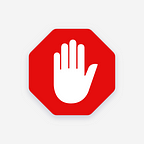Why is Online Privacy Important?
Our personal data is everywhere these days. Google yourself and you’re likely to find your social media profiles, address, phone number, and even the names of people associated with you. Taking back control of your information is more important than ever so that you can stay safe from cybercrimes, as well as keep your privacy intact. That’s why this month we’re exploring what online privacy actually is and why it’s important.
What does online privacy mean?
Personal information is regularly gathered when you browse the web. From the websites you visit to your browser itself, companies are compiling your personal information. This information can be demographic like age and location. And it also includes your online behavior like shopping habits, search history, and browsing history. Much of this tracking is done to personalize your internet experience and maximize the chance you’ll spend more money.
Online privacy hinges on the level of confidentiality you maintain while connected to the internet. It involves the collection, storage, and sharing of your data both on your devices and across online platforms. Because of internet privacy laws, users have the right to understand how their data is being used and to access online privacy agreements.
It’s important to protect your online privacy because it’s essential for your security and autonomy. Without data protection, you are vulnerable to things like identity theft and fraud, as well as the exploitation of your personal information without your consent. Thankfully, we’ve got a few tips for staying safer as you browse the web.
Ways to increase online privacy
Choose what you share carefully
At the end of the day, the less information there is about you online, the less there is for others to use against you. When signing up for an account, use your best judgment. Is what you’re being asked to share necessary or required? If not, skip it! And when it comes to posting on social media, keep in mind that you should probably limit sharing your personally identifiable information (also called PII). PII includes things like your full name, birthday, address, email, and other information that can personally identify you. This type of information is extremely valuable to cyber criminals because with enough of it, they can hack into your accounts or even steal your identity.
Use multiple passwords
One common way cybercriminals hack into accounts is called a brute-force attack. This attack uses technology to guess at passwords until it gets a correct one. When you use different passwords for different accounts, rather than the same one every time, you’re protecting yourself from hackers gaining access to all of your information. That’s the difference between someone figuring out a password to your social media account vs. someone gaining access to your social media account, bank account, and anything else you do online. Using a password manager makes keeping track of your passwords easy, too!
Use an ad blocker
An ad blocker, like AdBlock, is helpful for protecting your online privacy. AdBlock comes with a filter list option that blocks tracking while you browse, making it harder for third parties to collect your personal data. When you enable the EasyPrivacy filter list, it prevents ads from tracking your online activities by blocking the trackers advertisers use to know what sites you visit. (Please note that using this filter list may cause issues on sites that rely on third-party trackers, like many banking sites do. You can typically work around that by adding sites to your allowlist, though this will unblock ads on those sites, too.) For instructions on how to subscribe to EasyPrivacy, click here.
You can prevent even more unwanted tracking when you use AdBlock Premium. Premium gives you the ability to block cookie banners while automatically rejecting any unnecessary cookies associated with a website. Cookies are designed to collect your data and blocking unnecessary cookies reduces the amount of tracking you’re exposed to as you browse.
AdBlock can also reduce your exposure to malicious ads as you browse. Malicious ads are ads that are infected with malware — software that sneaks its way onto your device. This software can include viruses, ransomware, and other malicious programs that collect your personal information and send it back to hackers.
While AdBlock doesn’t specifically block malware, it does reduce the amount of ads that load in your browser. And that means there are fewer chances you’ll click on an infected ad. It can also act as an alarm if you notice you’re inundated with pop-ups even though AdBlock is turned on. Usually this is a sign that you have adware on your computer (a type of malware that involves showing ads).
Use a VPN
When you use a VPN (also called a Virtual Privacy Network), you’re able to make your internet connection private. That’s because a VPN creates an encrypted tunnel between your device and its servers. All of your internet traffic is routed through that secure tunnel, keeping your online activity and data secure.
With AdBlock VPN, you can hide your online identity and browse privately. Your web traffic is routed through the VPN’s servers and your IP address is replaced with a new address from the VPN’s network of virtual locations each time you connect. This allows you to browse anonymously. It also allows you to use public Wi-Fi more securely.
With the right tools and privacy focused behavior, you can have a more secure experience browsing the web. The AdBlock extension and AdBlock VPN are great ways to increase your online privacy because they give you more control over how you share your data on the web. And of course, using your best judgment around sharing your information is the most powerful tool of all!
We love sharing resources that make the internet a better place! Sign up for our monthly newsletter.
